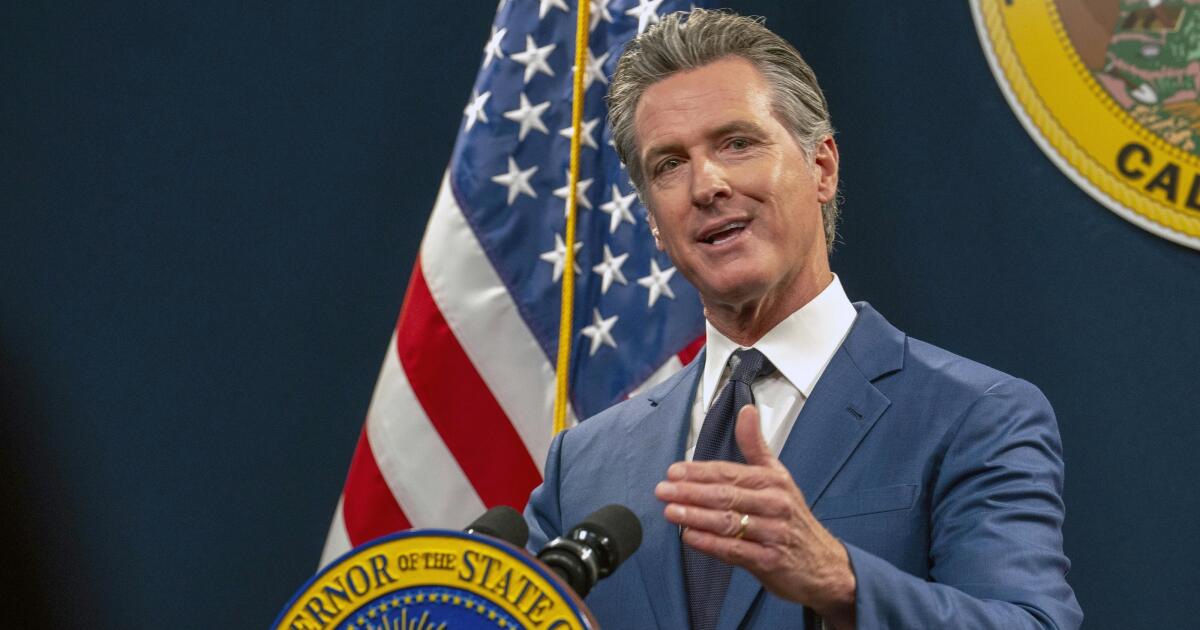Newsom’s final State of the State speech steeped in rosy view of California, his record as governor
SACRAMENTO — In his final State of the State address, Gov. Gavin Newsom will look to define his legacy by touting California’s economic and policy achievements while casting the state as a counterweight to dysfunction in Washington.
The speech, which he will deliver Thursday morning to lawmakers in the Capitol, highlights economic strength, falling homelessness and expanded education funding, while also offering a glimpse of how Newsom is positioning himself beyond his final year in office.
In a summary of the speech provided Thursday morning, Newsom portrayed California as a financial powerhouse that strives to help those in need and works diligently to address its own shortcomings, including high housing costs, unlike the chaotic Trump administration. Newsom, who has acknowleged that he is considered a 2028 bid for president, argues that the state is positioned not just to endure the moment but to help shape what comes next nationally.
Newsom is expected to announce an estimated 9% drop statewide in unsheltered homelessness last year, addressing a topic that has been a persistent political vulnerability for the two-term governor and former San Francisco mayor. Despite some improvements, California has been home to nearly a quarter of the nation’s homeless population, according to the Public Policy Institute of California.
Newsom also said two of his top priorities — the mental health program known as CARE Court and Proposition 1, the statewide bond measure he championed to provide funding for mental health and homelessness — are achieving results ahead of schedule, with counties now equipped with funding, authority and tools to combat the crisis.
Calling affordability a multi-layered crisis, Newsom is expected to signal a tougher stance toward the buying spree of homes by private equity and institutional investors in California. That message is a rare point of rhetorical overlap with Trump, who has said the United States should bar such practices because they push prices beyond the reach of many Americans.
Newsom offered a few previews of select budget priorities, with his office set to unveil the full proposed budget on Friday. The governor will announce that the state would set a record on per-student funding in public schools and fully fund universal transitional kindergarten under his budget proposal. He is also expected to announce a major shift in how the state oversees education, unifying the policymaking State Board of Education with the California Department of Education, which is responsible for carrying out those policies.
The address will mark the first time in five years that Newsom delivers a State of the State from the Assembly rostrum. His last in-person address came shortly before COVID-19 shut down the Capitol in early 2020.
Last year, he delivered his written remarks unusually late, in September, during which he said the state was under siege by the Trump administration — which he accused of dismantling public services, flouting the rule of law and using extortion to bully businesses and universities — all while California grappled with the aftermath of the devastating Los Angeles County fires, spiraling housing costs and an uneven economic recovery.
Like past speeches, Newsom will tout the successes of California, now the world’s fourth-largest economy.
